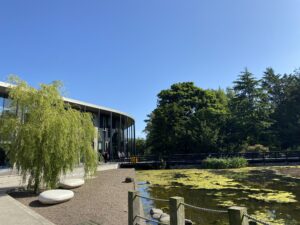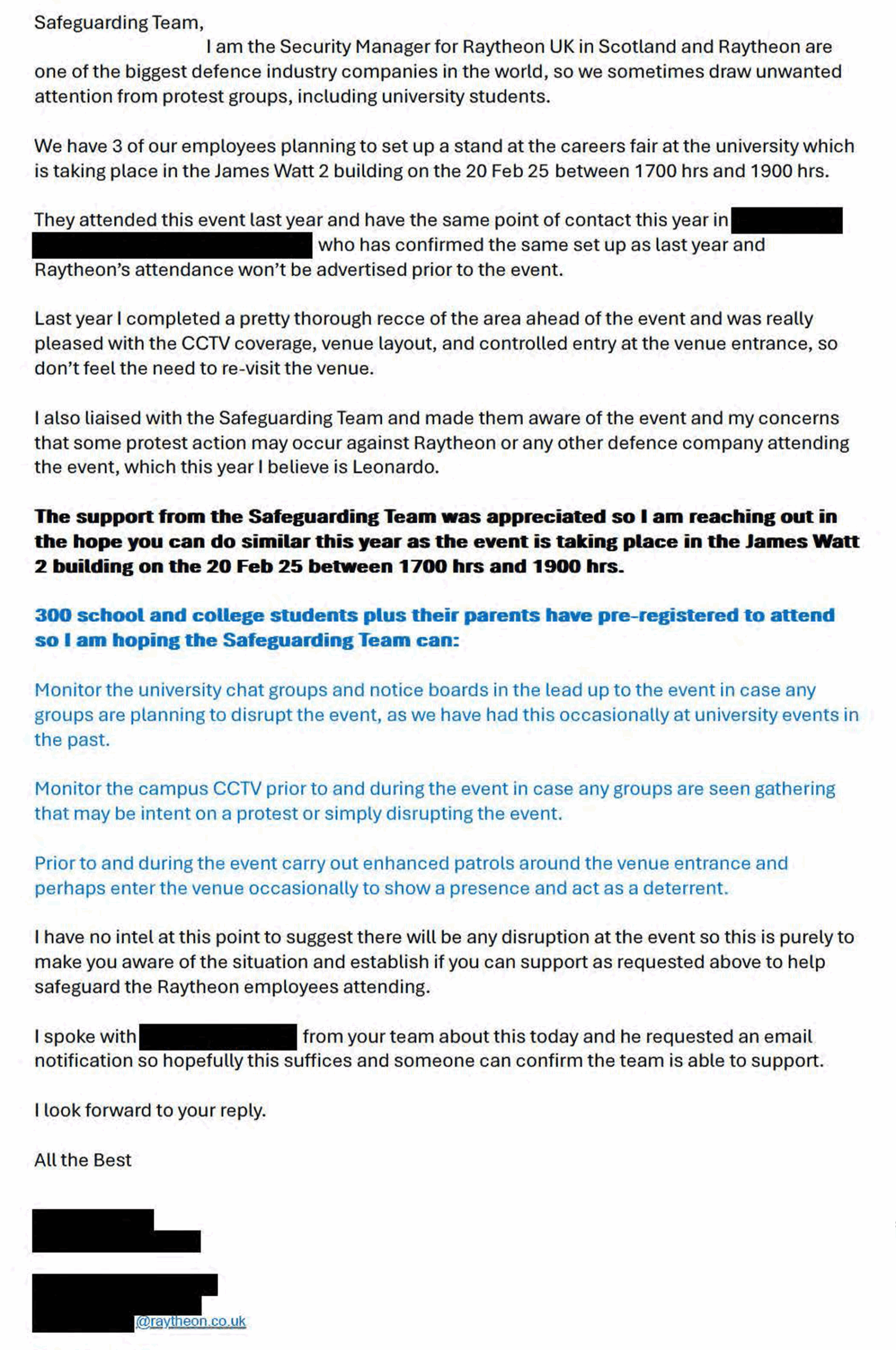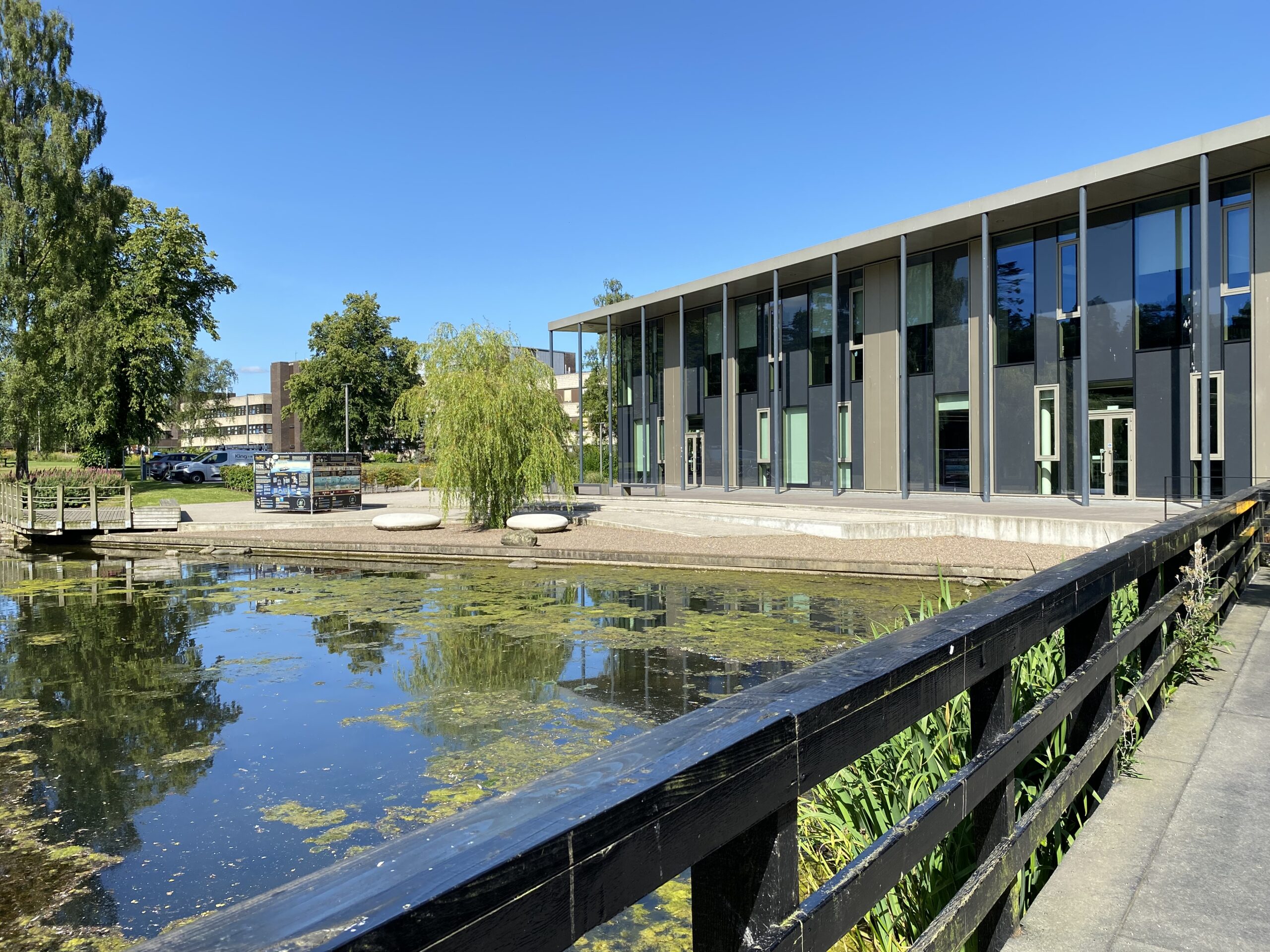Scottish University agreed to ‘monitor’ students for weapons company supplying IDF, emails reveal
Published on 13 July 2025
Heriot-Watt University hosted defence companies Raytheon UK and Leonardo at a careers event in February this year. Credit: Garrett Baylor Stell

Emails suggest staff agreed to "implement" security measures including a request to "monitor university chat groups"
By Aaron Walawalkar and Harriet Clugston, for Liberty Investigates and Garrett Baylor Stell for the Herald.



